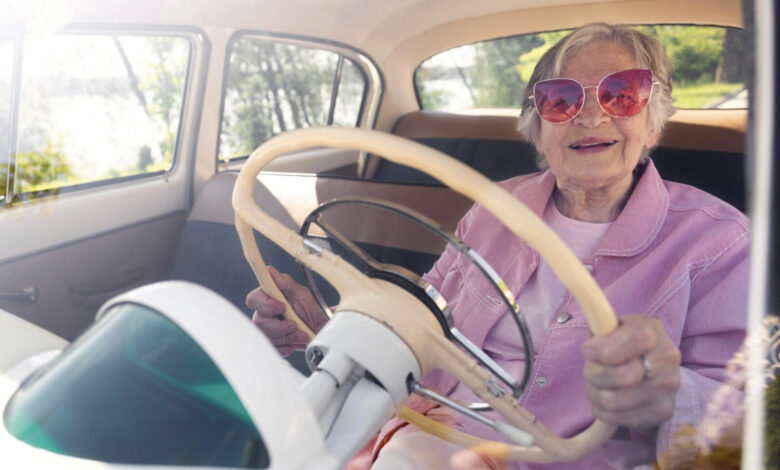DRIVING AND COGNITIVE IMPAIRMENT

As people get older, a lot of things about us change. One of the more disheartening of these “changes” is the development of trouble thinking and reasoning, and problems with recent memory. Our friends and family watch the person we were transform into a forgetful, confused, and lost vessel that once housed the spirit of the person. Called Mild Cognitive Impairment, it is the first sign of the trouble yet to come—dementia. As Americans live longer, we are seeing more dementia. People aren’t dying in their 40’s, 50’s, or early 60’s as often as they did in past generations so the decline in intellectual function many of us have has longer time to appear and cause the changes we see.
Intellectual decline brings about many alterations/limitations in a person’s life. One of the most problematic of these is the loss of autonomy. Grandpa can no longer be trusted to do things on his own because he can’t remember. He forgets appointments, forgets to pay bills, and can’t remember to turn right or left at the corner. So these functions and decisions are made for him by someone else. Some losses of autonomy come more easily than others. Taking away some functions bring about outbursts of anger, animosity, and outright hostility.
One of the major losses of autonomy comes when a person is told he/she can no longer drive a car. Losing the ability to drive forces the person to be completely dependent on someone else. To get where you want to go requires someone to drive you there. No longer can you just hop in the van and go to 7-11 for some milk.
But as it turns out, 60% of older adults with cognitive impairment are still driving! And this is despite 36% of their caregivers reporting safety concerns—they react slowly to sudden stops, drive too fast/too slow for the situation, turn the wrong way at corners, or just flat get lost. Geriatric researchers report caregivers warning the people they care for about driving at night, in the rain, or in busy traffic. These folks who have little insight into their situation, continue as if there is no problem. This portends an accident sooner rather than later.
Getting someone to stop driving can start WWIII. It’s a battle that must be fought for the safety of the driver, his passenger(s) and other drivers. Doctors can back up what the family reports fully knowing the patient’s lack of awareness is going to be a big obstruction to success. It sometimes helps to perform a mental status exam to point out deficiencies the driver experiences and demonstrate where problems exist, but most still deny there’s anything wrong. Actual driving tests are helpful as well and resources exist through the Bureau of Motor Vehicles to test an individual’s driving ability.
The 60% statistic is the scary part because you know you meet a few of those folks on your way to and from work. Hopefully, they can be convinced for their safety and that of others to hand over the keys to others in the family.
Reference: Vaughn L, Hogan PE, Rapp SR, Dugan E, Marottoli RA, Snively BM, Shumaker SA, Sink KM. The Journal of the American Geriatrics Society 2015 September;63(9):1774-1782.
Medical News in Brief: Many Older Adults With Cognitive Impairment Continue Driving JAMA 2023 August 22/29;330(8):685.




